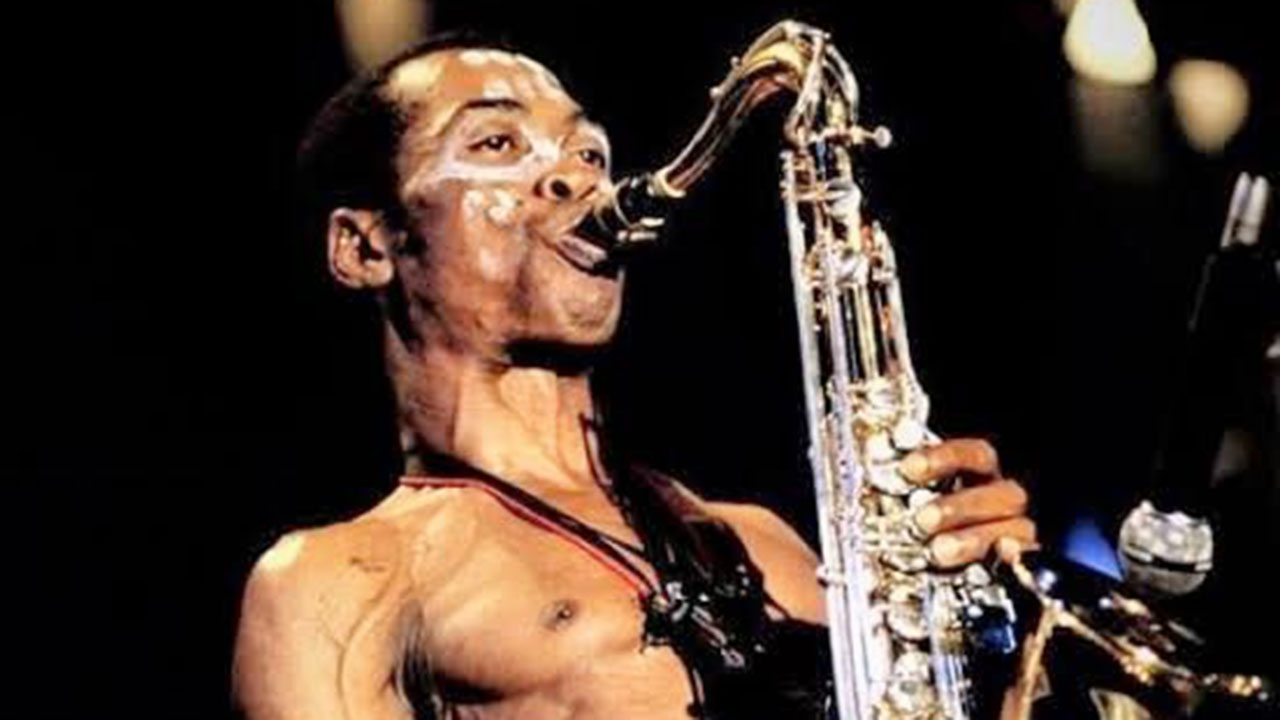Drive-in theatres have come back as salvation during this COVID-19 pandemic lockdown. In the past few months, people have now started heading to the cinemas to watch movies in their cars and observing social distancing.
Exhibitors have recorded successful drive-in cinema screenings, where people enjoyed movies from their cars, separated from other cars, in an effort to respect physical distances.
The boom has not only been for films but also for church services and concerts. Venues, which run cinema nights on Fridays and Saturdays, now hosts ‘drive-in church’ on Sundays.
Nollywood filmmaker, Charles Okpaleke, pioneered the innovation in Abuja. He test ran the experiment with the first-ever Drive-in Concert, which was a live performance from Styleplus and some DJs.
Lagosians also experienced the culture with SwiftThink’s first show held at the open-air grounds of Redemption Camp, Lagos-Ibadan Expressway.
The Drive-In Theatre or Drive-In Cinema is quite simple in its set up. It is a stage or large screen situated outdoors. The basic requirements are stage, screen, projector (for showing films) or lighting for stage plays and speakers. Some drive-in theatres even distribute headphones as you come in. However, the most important requirement is a huge area for the parking of cars.
A drive-in theatre allows spectators to watch plays or films from the comfort and privacy of their cars. You drive into a parking slot, switch on your headphone and watch the film or play.
Some drive-in theatres even provide other forms of entertainment, such as tables and chairs, for those who want to use that facility instead of sitting in their cars, and stores to buy drinks and snacks.
For Biodun Rasheed Ifafore, a University of Ibadan-trained theatre artiste, who is based in the US, “they come in two formats: Indoor drive-in, which is just one car per shed and a large screen in front of you. You are seated in your car with your family friends or whoever but it’s private and air-conditioned with doors closed behind. You can call for services like drinks, etc. It’s basically more like a hotel room but changed into a theatre. The operators usually have about 25 to 30 sheds. It’s common in Texas because there is available land space. The private one is for people who want to watch X-rated movies or have privacy. The second type is also a drive-in but not private. Though there will be about 25 to 50 cars with their occupants seated inside them they are all staring at a giant screen. They also get service but it’s not private.”
Can it be a permanent feature of Nigeria?
“Definitely,” Dr. Sola Adeyemi, coordinator of master’s of arts programme at the Goldsmith College, London, said.
He said it is simple to organise, and because of that simplicity, “it is the perfect channel of entertainment for Nigeria today. We have space, electricity can be arranged and we have always been very good managers of the sound system. It is cheaper than renting a hall, and it allows for more audience, properly managed. Take the National Theatre at Iganmu for instance. Why not stage a play on the terrace, or screen a film, with people parked in the grounds? And not only in Lagos – there are suitable spaces all over Nigeria. And the audience is there (if the security can be guaranteed!)”
According to him, “in an environment with good infrastructure, where everything functions right, it is very easy to make drive-in theatres work. In any circumstance, it is cheaper than constructing a building. The most expensive outlay is the land, and this can be a car park, a school playing field, or a stadium. The Race Course or the National Theatre are perfect examples. The other necessary conditions are security, constant electricity (though it has been known for plays to go ahead lit by car headlamps), and proper sound management.”
What are the challenges?
“The advantages are built in the challenges – and the major one is the audience. How are you going to convince people to attend? And, remember, these are people who must have vehicles of their own. But, to me, the other near-insurmountable problems are the Internet and digital television. These are so affordable nowadays that the audience may choose the safety of their homes to the social vibes of the Eagle Square. Despite this, it is a viable option for regenerating the entertainment industry in Nigeria, and it can almost take us back to the days of the Yoruba Travelling Theatre,” Adeyemi said.
The playwright, dramatist and culture consultant, Ben Tomoloju, said, “there have been various ideas on how to apply new technology to ameliorate the crisis heaved upon the theatre profession by the current global pandemic. As an innovation, I cannot object to such efforts. In fact, I would encourage it insofar as the new deal is not pretending to be the real deal. For instance, there is a project involving my humble self that has been tied down since March. Inevitably, we have to devise an innovative, virtual means to move on with it. So, we must encourage new technological trends. I only suggest, however, that it shouldn’t become a mere fad. Having said that, mine is the real deal; a peopled theatre, alive and sentient. It wouldn’t matter to me if, in the name of social distancing, you open the box office for 200 members of the public in a 500-capacity auditorium and raise the entry fee proportionately, live theatre is the heart of the matter.”
For Prof. Barclays Ayakoroma, “security is an issue.” He also pointed to funding as key to the innovation. “It can work as far as people patronise them as they do to nite clubs,” the theatre teacher concluded.
The Artistic Director of Arojah Theatre, Abuja, Jerry Adesewo, said, “desperate times require desperate measures. Drive-in-Theatre, Drive-in-Cinema, Drive-in-Concert is the response to pandemic-induced lockdown and new normal in terms of social distancing that we find ourselves. It is an excellent stop-gap and addition to showing the business’ in this time of the pandemic.”
He said: “In the Abuja production of Ola Rotimi’s Grip Am, Agozie Ugwu, the producer and director, added an interesting twist to it: A radio frequency was created strictly for production, which transmitted the audio of the production into all the cars. And whenever they found anything interesting, they honk their cars in response.”
He added, “the Abuja experiment was successful. As in, apart from the rain, nothing else went wrong. So, I would say, Nigeria is ripe for it, depending on the attention paid to details by the organisers. Of course, the Naira Marley drive-in-concert, which resulted in sealing of Jabi Mall comes to mind. This is where the organisers integrity matter. If we had not done it with Grip Am, one would have thought it was not possible. But with what Mozaic Production did in Abuja, I believe Nigeria is ripe for it.”
Film producer, actor and author, Yinka Ogundaisi, is not excited about it. His words: “First consideration is how the regular cinemas are faring and I’m talking about real commercial success, not ‘cooked’ success designed to impress and hoodwink the investors, government grants-approving authorities.”
Ogundaisi said, “it requires a large space for the audience or multidimensional screens to reach the audience where they park and you need to consider that the patrons will have to be stationary for the duration of the movie. It certainly will be novel; pricey for the few that can afford its exclusivity but the profitability and sustainability are hanging questions.”
No doubt, the Nigerian cinema market is still enticing. It accounts for over ₦10 billion in box office earnings alone in 2019, with estimated total revenue of ₦35 billion. The Drive-In initiative may not be an option or alternative to many film companies, because of variables that make them a challenge such as revenue barely meeting up with the cost of operation. More funds are expended producing, which are not recouped at the gate. The tickets for drive-in theatre are cheap and fewer people come to the screenings.
The Nigerian cinema exhibitors, distributors and employees, under the aegis of Cinema Exhibitors Association of Nigeria (CEAN) recently lamented the imminent collapse of the theatrical sector in Nigeria, and by default, the Nigerian film industry, due to the continued suspension of cinema operations, as a result of the lockdown.
They said the Nigerian film industry, which is reputed to be one of the biggest around (based on the number of films released), producing an average of 50 films weekly, accounting for over ₦200 billion in yearly revenue, and providing over one million jobs, as the second-highest employers of labour after the agricultural sector, and with a potential to produce one million more jobs (as estimated by World Bank), is faced with a danger of going extinct.
The group noted, “in the governments effort to re-open the economy, the importance of prioritising the safety of Nigerians cannot be overemphasised. However, it is also expedient to consider the huge economic disaster brought upon this very important sector, by the continued suspension of cinema operations and other film-based businesses.”
CEAN said, “over 250,000 workers, some of whom are directly employed by 58 taxpaying cinemas in the country, have been furloughed and recent multi-million dollar investment like MX4D, IMAX & 4DX theatre halls with heavy technical equipment has been left to deteriorate; international/local creditors and investors are crying out for their money; production of films has been suspended, consequently resulting in joblessness and huge debts for Nollywood professionals.”
Only time will tell whether these outdoor cinema venues popping up will survive.






